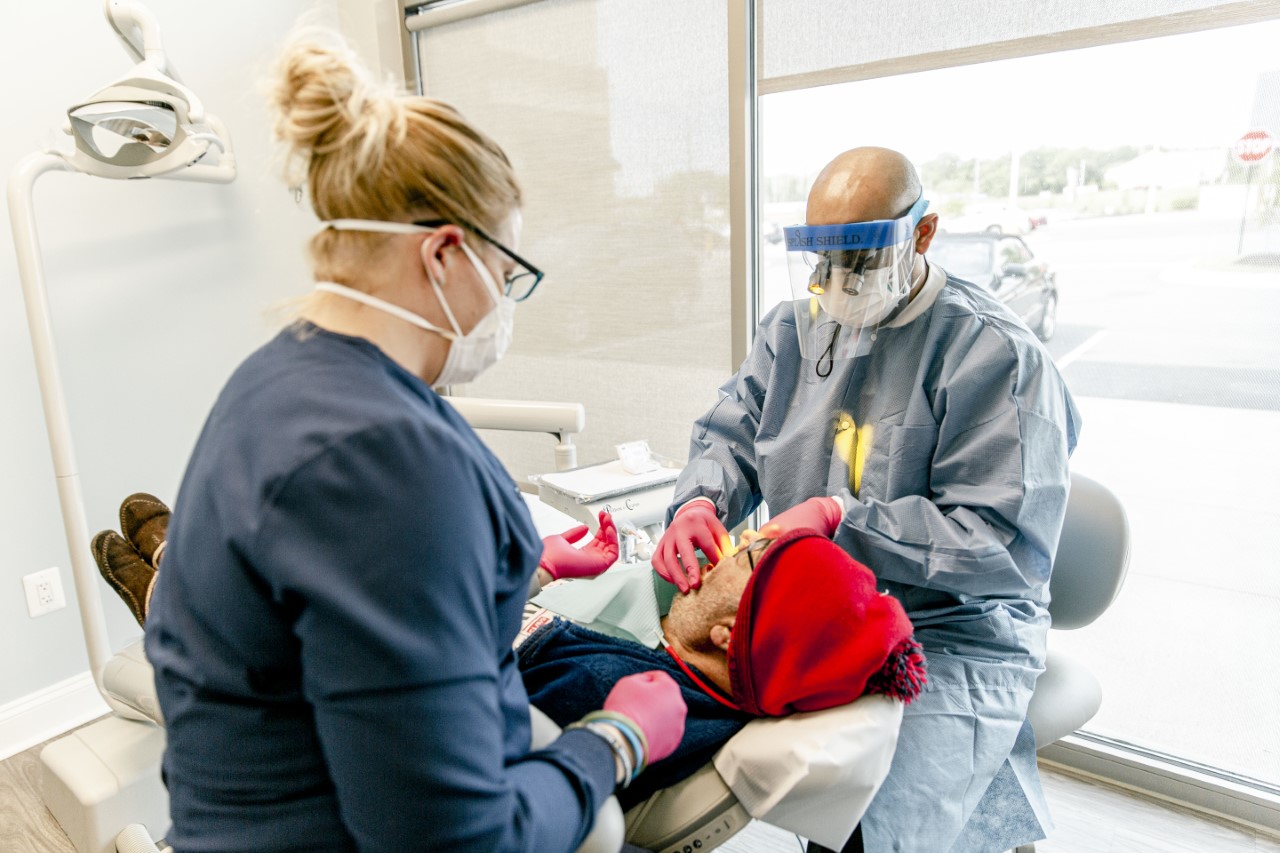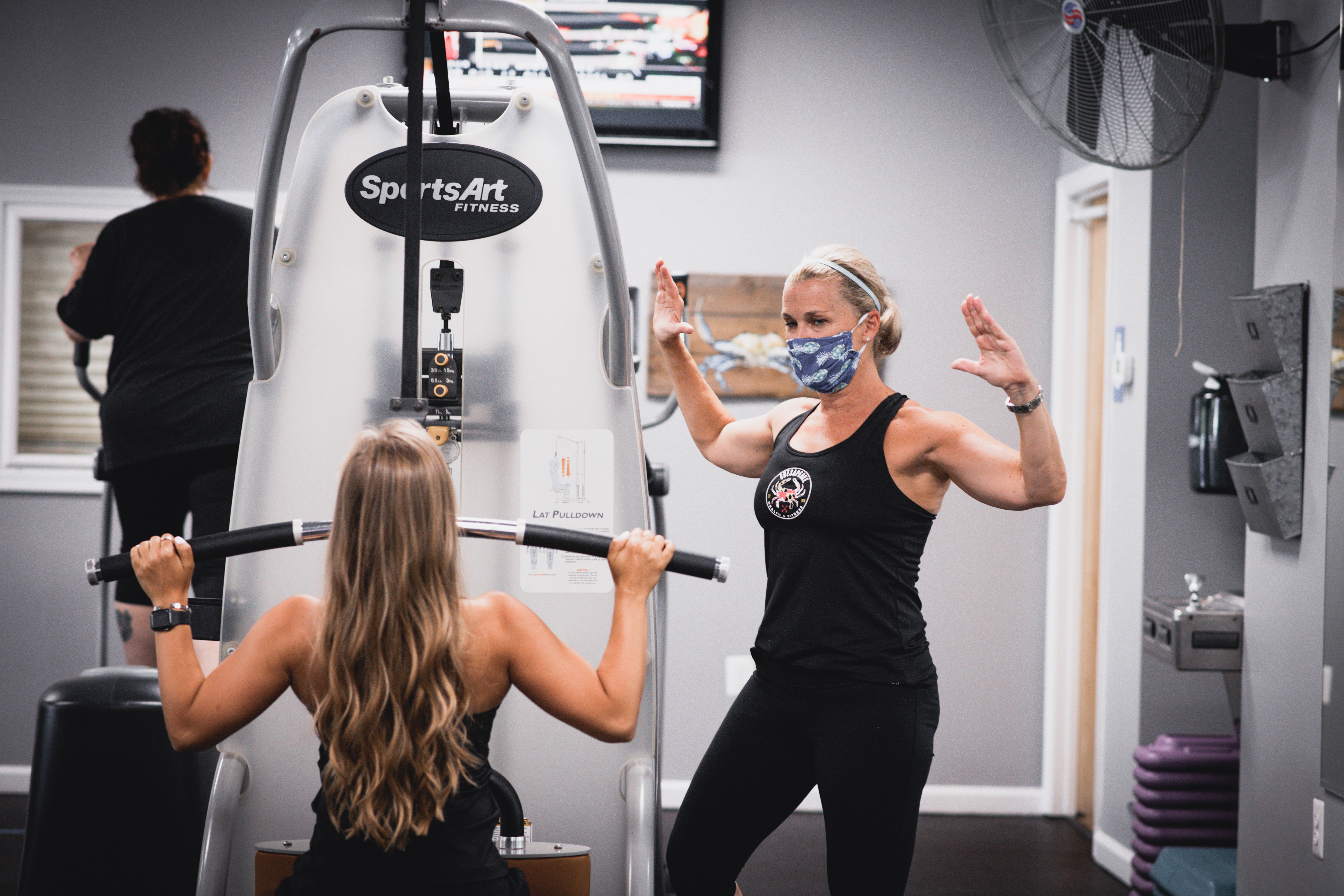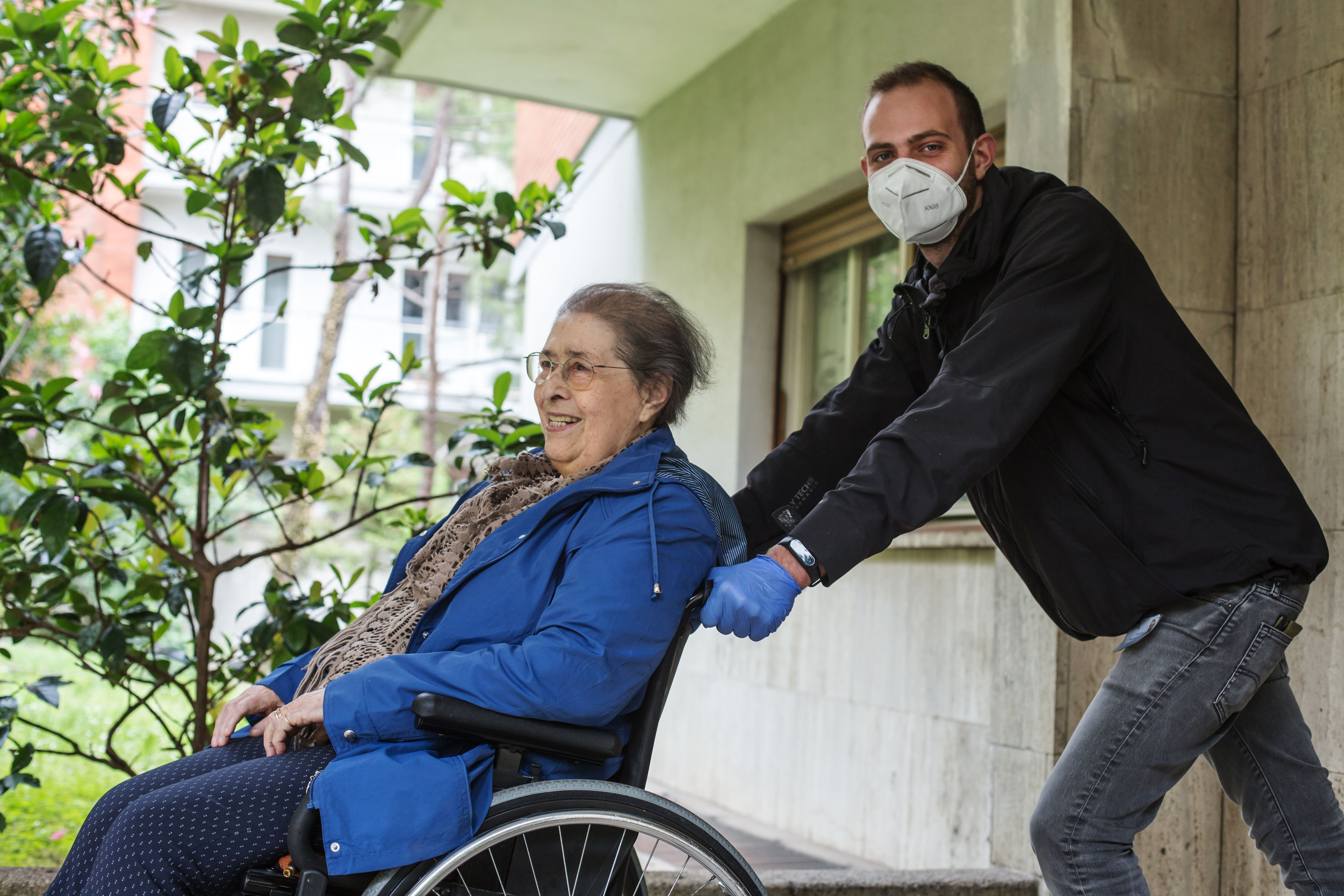A Healthy New Year

Double down on health & wellness in 2021
By Kathy Knotts
Never has our health been more on our minds. When COVID-19 became part of our daily lives we shifted our focus to hand-washing, wearing masks and monitoring potential symptoms. Unfortunately, other elements of our well-being fell to the wayside.
Did the pandemic knock your own routine healthcare off schedule? Perhaps you canceled appointments and screenings last year that you haven’t gotten around to rescheduling? We understand.
That’s why now is a good time to get back into your healthcare routine by taking care of those missed appointments, adding healthy habits to your day and make 2021 your year of healthy priorities. Our health and wellness providers continue to work hard to treat their patients safely and comfortably.
First Steps
Take the first step in committing to a healthier year by getting a dental health check-up. Medical experts say that a healthy mouth is critical to whole-body health and during the pandemic, certain stress-related oral health concerns are on the rise.

“Those who are not elderly or health-compromised should maintain regular dental appointments to ensure the health of their smile,” says Jeffrey Tomcsik, general manager of Tidewater Dental. “There are no problems in dentistry that go away on their own. Decay, untreated only gets worse. The worsening condition is often accompanied by pain and/or discomfort and will often require a much more expensive or uncomfortable treatment.”
Dental offices shut down nationwide after being advised in March by the American Dental Association and the Centers for Disease Control and Prevention to close their practices for all but emergency care. Most in our region have reopened with safety protocols in place.
“The dental office has been determined to be a relatively safe place in the age of COVID-19 thanks to our professional PPE use and our disinfection controls,” says Tomcsik. “Any necessary treatment that is not taken care of will ultimately only get worse, which could lead to pain and/or discomfort and potentially a more expensive resolution. So, patients should really consider getting their treatment done sooner rather than later.”
Can You Read This Line?
The same goes for those peepers. If you are visiting your eye doctor’s office for routine eye care or for an urgent need, you may feel nervous about venturing out during the coronavirus pandemic. But rest assured that eye care clinics follow strict hygiene and disinfection guidelines to keep you safe.
Vision screenings may be even more important now that we are all spending a lot more time in front of screens. In addition to detecting vision changes, regular eye exams can also detect life-threatening conditions. Eye diseases are common and can go unnoticed for a long time—some have no symptoms at first, says the Centers for Disease Control. A comprehensive eye exam by an optometrist or ophthalmologist is necessary to find eye diseases in the early stages when treatment to prevent vision loss is most effective.
“Patients that don’t keep up with routine care are missing out on important screenings that can detect things like cancer, diabetes or high blood pressure,” says Dr. Rose Susel of Dunkirk Vision. “During the spring lockdown, a lot of appointments were put on hold and patients haven’t come back for those appointments. There are a number of systemic conditions that affect the eyes and a patient may have no idea something is going on until it’s too late.”
Susel’s staff at Dunkirk Vision report that they are now fully open and scheduling appointments for patients, but keep in mind that your office visit may be a little different, with staff screening patients on-site, taking medical history over the phone, having patients wait in the cars instead of the waiting room, and requiring masks. “We have implemented enhanced work place infection control measures including multiple plexiglass barriers, breath shields, increased disinfection systems and UV sanitization of frames and air purification,” says Susel.
Strategic scheduling helps keep the number of people in the building low and avoids bottlenecks of patients. And Susel points out that with more of us working from home, we should make the time to schedule an eye exam. “This is the time to take care of yourself,” she adds.
Make Time for Movement
Taking care of your physical health includes getting plenty of exercise and movement daily. With most of us still working and learning from home, sitting for long periods of time feels inevitable. While fitness centers and gyms are operating at limited capacity, they can still provide group classes and equipment for those of us who prefer to work out away from home.

“We are at a 25% capacity,” says Kristina Gardiner, co-owner with Vanessa Runion of Chesapeake Health and Fitness in Deale. “However, that shouldn’t alarm you if you need to get in here and blow off some steam. We are rarely at the maximum limit so don’t let that deter you for reaching your 2021 goals.”
Exercise is especially important now because it can reduce stress, prevent weight gain, boost the immune system and improve sleep. “Although it might be tempting to skip your workout during these challenging times, public health officials say that exercise is essential. People who are in better shape are less likely to be hospitalized due to COVID-19,” says Gardiner.
Masks are required indoors and class sizes are smaller, but fitness centers are expanding the options available to members. At Chesapeake Health and Fitness, that means members can spread out on the main gym floor, take a small-sized group class, and use private rooms to attend a virtual class in the gym or at home.
“We launched a Virtual Library in 2020,” says Gardiner. “It has over 175 classes that our members can use right from the comfort of their own home. All of our amazing instructors are on there, guiding them through their workout. Some members even use the Virtual Library at the gym. They use one of our private rooms to jump on a spin bike or use the equipment so they can take a class with their favorite instructor! It has been a great addition to their membership.”
The Doctor Will See You Now
The pandemic has forced everyone to think about doing business in new ways, safely and efficiently. That applies to physicians’ offices, too. Last March, Bay Community Health met the COVID-19 pandemic with the goal of keeping patients and staff as safe as possible. Tents were set up outside the West River location to perform pre-appointment screening and occasionally coronavirus testing, too. The tents have now been replaced with a temperature-controlled trailer where staff screen incoming patients from their vehicles.
Patients are offered tablets to talk to their provider via video conferencing from the parking lot and in-person visits limited.
“Each visit is tailored to the needs of the person and if, during a parking lot ‘tablet visit,’ it is obvious the person needs to be evaluated closer, the provider will go outside or the patient would be brought inside,” says Dr. Wayne Bierbaum.
“We initially closed our Quest lab but reopened the West River site within the month but are limiting lab visits to one at a time.”
Early each morning, a patient “huddle sheet” prepares the medical providers with a list of suggested care needs for each patient, such as blood testing, mammograms, and vaccinations, says Bierbaum. The provider goes over the day’s visits with the support staff. Certain blood tests, HgA1c (for diabetes) and INR (for blood coagulation), can be done by fingerstick, and blood pressure readings can be done in the patient’s vehicle.
“I have to admit that doing a visit on a computer is frequently awkward but most important medical decisions are made through listening and asking follow up questions,” adds Bierbaum. “Obviously, small children, the hard of hearing, and others still need to be brought indoors to the office. We hope that everyone is comfortable with their options and keep up with routine evaluations and testing. It is important that COVID does not keep someone who is ill from seeking help.”
Caregiving for Seniors
The pandemic has highlighted the specific health needs of those in nursing homes, giving us all something to think about as our large Boomer population ages. Who is going to care for our most vulnerable citizens if they aren’t quite ready for a nursing home or assisted living facility? What if they live independently but should be staying away from extended family during the pandemic?

Businesses like Response Senior Care in Annapolis fill the gap, providing non-medical in-home care services such as personal care, light housework, meal preparation, exercising, companionship, errands, transportation, and respite care in an individual’s own home. The staff, caregivers and RNs are carefully following all CDC guidelines, reminding everyone of the importance of handwashing and wearing PPE, especially when interacting with seniors. “We provide the caregivers with gloves, face shields and N95 masks to wear when providing care,” says owner Samantha Moyer.
Keeping seniors in contact with others is a vital need during the pandemic, says Moyer. “The constantly evolving situation COVID has created can cause stress and uncertainty for seniors. Our caregivers ease this added stress by creating structure and maintaining a daily routine for their clients,” she says.
“One of the most important things our caregivers do is provide companionship. The bond between caregivers and clients is truly special and the health and safety of the client is top priority. Updates are given to family members that may live far away to assure them that their loved ones are receiving the best care.”
Good Health Ahead
Health providers and services remind us that pandemic or not, health and wellness are vital to good living. Staying on top of routine appointments, screenings and exams is important, as is making sure to get a COVID-19 vaccination when they are available to you. Make health and wellness a priority in 2021 and enjoy all that life along the Chesapeake Bay can offer.
